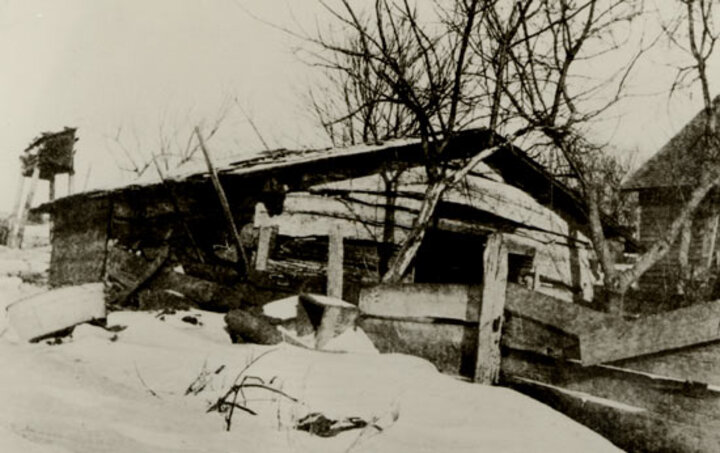Czech Contributions to the Progress of Nebraska
by Vladimir Kucera (1974)
Please feel free to download the whole document contributions.pdf
The golden disk of the setting sun slowly descends toward the horizon of this boundless expanse, and changes it into thousands of strange, ever changing pictures which cannot be comprehended by the eye nor described by the pen. The Great Prairie burns in the blood-red luster of sunset, which with full intensity, illuminates this unique theatre of nature.
Here the wildness of arid desert blends with the smoother view of full green land mixed with raw, sandy stretches and scattered islands of trees tormented by the hot rays of the summer sun and lashed by the blizzards of severe winters.

This country is open to the view. Surrounded by a level or slightly undulated plateau, it is a hopelessly infinite panorama of flatness on which are etched shining paths of streams framed by bushes and trees until finally the sight merges with a far away haze suggestive of the ramparts of mountain ranges.
The most unforgettable moment on the prairie is the sunset. The rich variety of colors, thoughts and feelings creates memories of daybreak and nightfall on the prairie which will live forever in the mind.
Not only is one impressed by the virgin beauty of exquisite nature at sunset, but one also feels the magnetism of this country that compels one to love it forever. There is the sound of its dramatic past, for on the Great Prairie echo the heroism of western battles, courage and gallantry, determination and sacrifice, blood and tears?that inalienable heritage of pioneers. Here on this great prairie, once the free land of the red men, the heroic hearts of the settlers met with those of not less courage and honesty who were strongly determined to defend their hunting grounds, their homes, their free land and the vast herds of buffaloes.
The sun is already hidden behind the horizon. The night now takes possession of the prairie. The time comes to remember and think. This is a moment of reverie, a moment to sink deep into dreams and to listen to the mysterious voice of the past and present. This is a moment to catch the call of distance which ends somewhere in the massive ranges of mountains, to understand the Indian soul, the objectives of the explorers, the soldiers, the hunters, the pioneers and the missionaries, and thus to understand the warlike past of the plains. And perhaps in the last ghostlike gleam of sunset you will see the running herds of buffaloes; perhaps in the quiet moment which inaugurates the night, you will see again a chain of prairie schooners on the way to their new homes that will be free and better; and perhaps the shriek of the night beast of prey will strike your ears, a symbol of the departing day.
And in this moment you will realize that the prairie is not (illegible words because of punched out paper on page 4) toward those who can lose themselves in its mysterious past, written forever in blood and tears. It is not niggardly toward those who can fuse with it or reveal their inner souls or toward those who appreciate the heroism of the pioneers' courage. The prairie is then generous the more so to a poet or painter and especially to those who revel in its dreams. She will serve them and reveal the fullness of her mysterious beauty.
The wilderness has been the setting for a dramatic epoch since its beginning, when the primitive hunter invaded this continent and looked down from the mountains of the West and with astonishment saw a wide open panorama like the open hands of a Titan.
For centuries the master of the Great Prairie was the Indian. He was the exclusive owner of the thousands of buffalo herds so essential to his way of life. For centuries these children of the prairie lived happily and freely, until suddenly the white man appeared, and there began a new epoch of discovery and conquest.
The Indians ardently defended their hunting grounds but the resolute westward march of the white man could not be stopped. And so the Great Prairie, principally the river basin of the Platte River , became a major artery of transportation westward and the highway of civilization and the place for settlements.